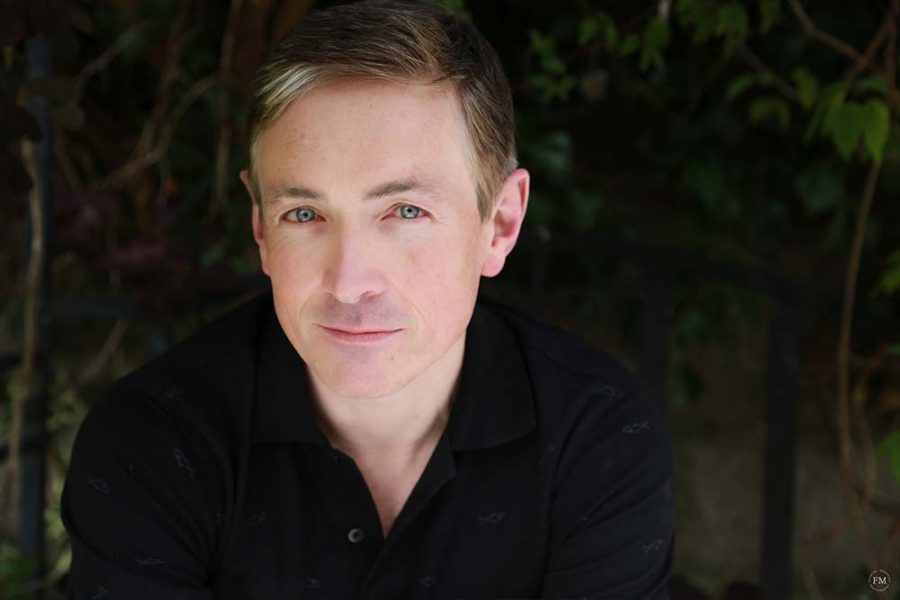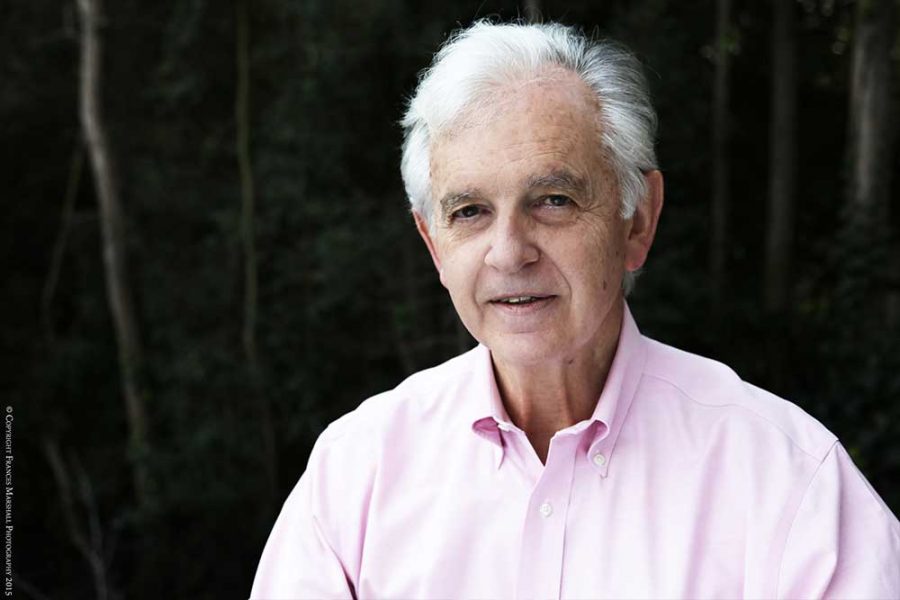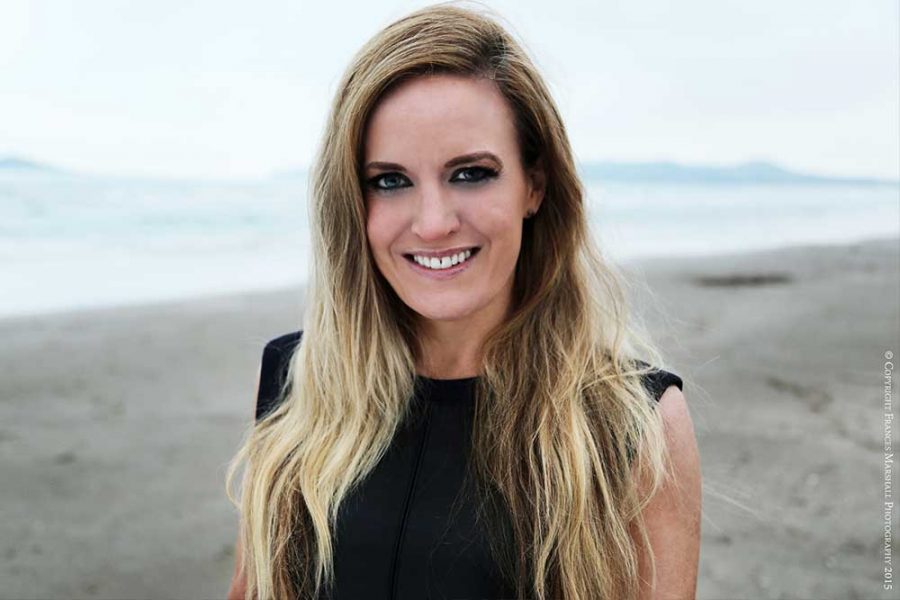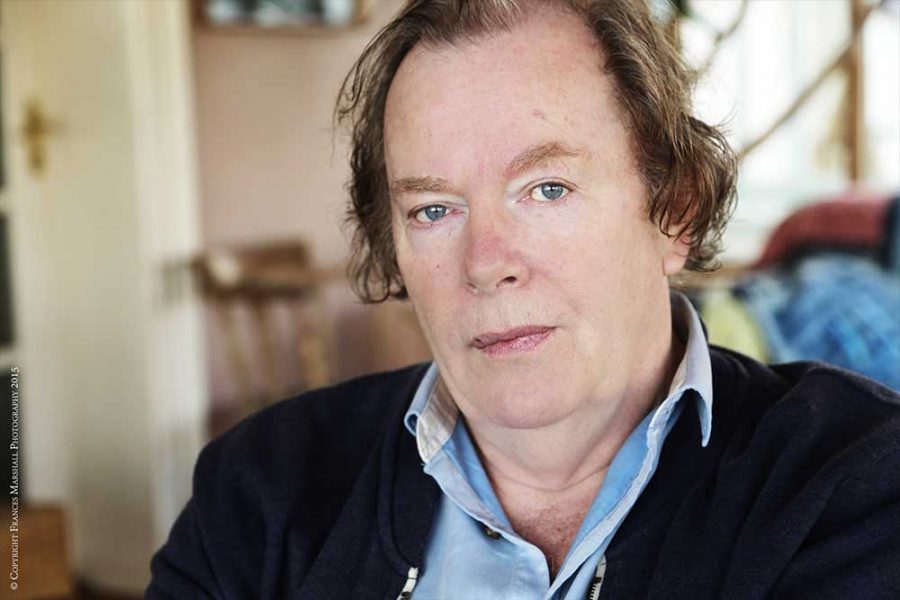Nurturing the future of classical music: Suzi Digby

July 2018
Interview and photos by
Frances Marshall
Edited by
Lesley Bates
Praised as “the mother of all music” by the Daily Telegraph, awarded an OBE for her contribution to music education, and invited by Mick Jagger to be official choir director for the Rolling Stones’ 50th Anniversary Tour, choral conductor and music educator Suzi Digby has spent much of her career trail-blazing the revival of singing in UK schools and the community.
Here she shares her thoughts with Final Note on the value of music education, the impact of growing up with eastern and western cultural influences and her passion for bringing great music to young ears.
Born in Japan, but educated in the UK, she graduated with honours in musicology from King’s College, London and, in 1990, was awarded a Winston Churchill Fellowship, enabling her to travel worldwide, studying methods of choral training and music education pedagogy.
She lived in Mexico, the Philippines and Hong Kong before settling in England, dividing her time between London and Cambridge where her husband, eminent economist Lord Eatwell, is President of Queens’ College.
In the last two decades, she has founded primary music education charity The Voices Foundation, London chamber choir Voce, the London Youth Choir, which serves all ethnic communities in London’s boroughs, and Vocal Futures, which focuses on nurturing young audiences for classical music. Her triptych for Vocal Futures, which included Haydn’s Creation, garnered overwhelming praise.
She is a visiting professor at the University of Southern California (Choral Studies) where, in 2014, she launched professional vocal consort, the Golden Bridge, which commissions Californian composers to reflect masterpieces of the Tudor Golden Age and of the European Renaissance.
Each year, she conducts 2,000 voices at the Royal Albert Hall in a scratch Youth Messiah – an event awarded the Classical Music Education Initiative Nationwide by Classic FM popular vote.
She has been a frequent judge on the Choir of the Year competition and was one of the judges on the BBC series Last Choir Standing. In 2014, she was asked by Jagger to recruit and train dozens of youth choirs around the world for their global On Fire 50th anniversary tour, appearing alongside the band at Glastonbury, Hyde Park and at the O2.
In 2016, Suzi founded ORA, a vocal consort commissioning international choral works as reflections of Renaissance master works.
These days I dread the lightbulb moment, because I know it’s going to take me to a place where I’ll need superhuman energy. I can’t turn off."

Tell us about your childhood. Do you think it’s a huge advantage at a young age to have such a sense of multiculturalism and difference?
I was born in Japan and travelled to Taiwan, Hong Kong, before beginning my education back in England. Being raised in Asia, there’s a sense that anything is possible if you push the right button and work hard. Pioneering is something that’s very much in my roots. I’m a serial entrepreneur and I suppose that’s another hereditary aspect of me. To be an entrepreneur or pioneer in the arts, you have to be able to see what’s possible and see what’s been achieved elsewhere. An entrepreneur sees an opportunity that’s currently not being met – that’s the beginning and thereafter the hard graft comes. It’s spotting what’s possible, and if you’ve had the exposure to different cultures that will help you.
These days I dread the lightbulb moment, because I know it’s going to take me to a place where I’ll need superhuman energy. I can’t turn off.
However I don’t think just because you’re travelled and have experienced a lot of cultures that you’re less prone to prejudice, I think there’s still a risk that one could fall foul of these human characteristics and failings. My favourite Shakespeare quote is ’Sweet are the uses of adversity’. My mother was raised in a Japanese prisoner of war camp and I think that having close hand contact with suffering and displacement does make you see the world in a very different light.
You’re pioneering many philosophies and bringing them together through music education. You’ve said that sometimes music education can be seen as a ‘recreational frill’. How have you challenged this?
It’s very hard because until I went into a Hungarian classroom and saw what was possible for ordinary children – not children just deemed to be musically talented – I wasn’t aware what I was missing. As I was trained in a very standard way by learning through music theory, I didn’t really understand what music education was. The distinction between music making and music education is so complex that it’s only understood by very few people. It’s very hard to find a simple clear cut way to transmit that to a wider audience unless they can actually see it happening. And this is why the Hungarian Kodály method is so brilliant. It comes from the deep understanding of the windows of opportunity in a child’s development and how they are best met.
Was that a key moment?
Yes because it really dawned on me that I had to translate theory into practice.
Do you think there’s room for these ideologies in the UK and how do you handle a situation where the teacher has little or no music background?
If you go to a government minister, or someone who’s involved in local education authorities etc, you need to bring them a message that says I can make your life easier and I can help you achieve your aims. And I promise you there will be a very different reaction to banging on the pavement and saying that you’re not funding us enough. So that’s what I did with The Voices Foundation London, I just got it working in as many schools as possible.
This is why we have to get into a school for a year and work with every single teacher in the school. The UK is the envy of many countries around the world regarding music education – there are pockets of outstanding work.
You taught music in the Diocesan Girls’ School, Hong Kong for 12 years. How did this differ to western music education?
I’d spent 20 years working in the most challenging inner city schools where the students had multiple first languages and lots of behavioural issues. I worked in two schools for permanently excluded primary school children.
It (the Diocesan Girls’ School) was a Chinese school, but English speaking: so I was teaching Chinese and Eurasian children. The level of behaviour and discipline is completely different in Asian schools – you’re not ever wasting energy on behaviour management. My main work in the Asian school was to prepare the students for competitions and win all the first prizes, which is what we did. I spent my time honing my skills as a choral conductor and bringing the very best out of young children through choral singing: they learned so fast and they were so teachable.

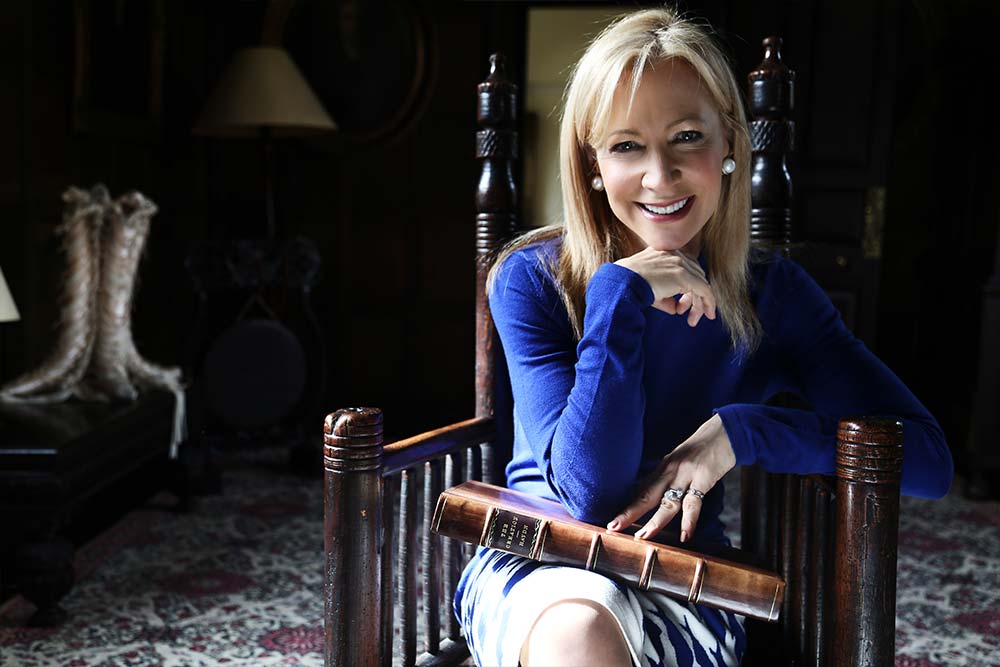


You’ve said bad music education is worse than none – what does bad music education look like?
To look at music education as a whole you’re talking about a vast universe of topics. The grade system applies to instruments and/or individual voice development, which is very different from a general music education in a classroom. The difference would be similar to literacy where you want basic literacy in a primary school, you need a curriculum and you need methodology in order to apply the curriculum. The curriculum framework for music in this country is very good, but it’s not worth the paper it’s written on if teachers don’t have the skills, resources or confidence to teach music as they teach all the other subjects.
In literacy, phonics is the methodology used in primary schools and it’s probably the best method that’s been found so far. It’s a similar method to music education as it’s a sound to symbol approach rather than symbol to sound, which has been how we have been approaching music education up until now. Symbol to sound is like using the Russian alphabet to teach children Russian, it doesn’t make any sense and you have a very high fall off as you’re setting people up to fail. Sound to symbol must be very carefully structured because it must be a progression of learning in music. If you’re talking about basic skills, I would be referring to the basic Kodály approach for every child versus your one-to-one music lessons; and the grade system is the music making aspect of it.
Now that you’ve taken this approach, what has been the result?
The bigger picture is that when these students then progress to learning individual instruments, there’s far less of a fall off. The percentage of drop-out for young children in the grade system is very high, certainly in piano before they get to any sort of useful level and that’s because they don’t have the basic grounding. We know that people who have this grounding have a far better learning curve.
What is the response you get from teachers when you bring your training to them?
The response is very good if they’re good teachers. There’s not much you can do for a bad teacher, but I believe there are very few of them. Primary teachers as a body are good and they’re in that work because they’re vocationally driven and they love children. All we really need from them is an agreement to have a go, and we get amazing results. The best practitioners, even if they come from a zero base in music training, are the good primary teachers and that is without doubt. Our job is to train them and give them skills and confidence. We train a group of teachers in the same way we train a group of children, so nobody falls off the wagon. That is what’s wonderful about the methodology: everyone can do it.
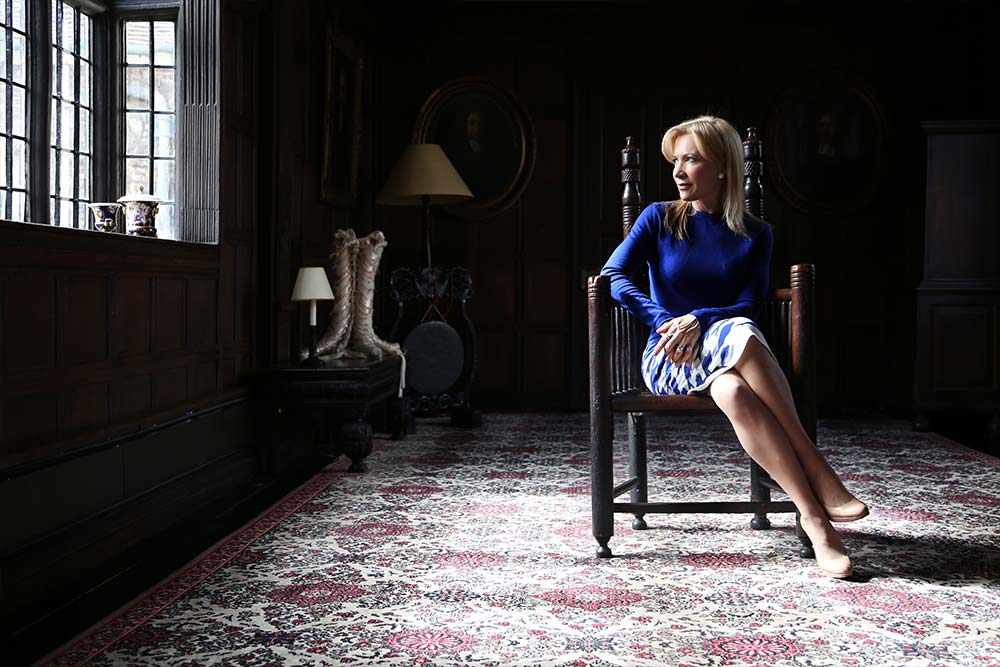

We need to work on how we bring in kids who are not being coerced: they must be open and curious."

You’ve identified an age group 16-22 year olds, and you’ve put a lot of work into this age category in order to build the general classical music audience. Why is this group so important to you?
This is my Vocal Futures initiative. These are people who’ve come forward, because they are interested in some aspect of the project. It may be their interest in history, language, mathematics or whatever. Then we introduce them to great music live. It’s about what live music and great music-making events can do for you as an individual. This came from my own experience when I was 16 onwards and in that narrow window you have while you’re old enough, have your full pack of cards to really appreciate great art but you’re not yet in full time work and having a family. This is the time where your personality and your idea of how you relate to the world is developing.
For me, attending classical music concerts, which I did voraciously at that age, were universe-shifting, because I was exposed to the greatest works – works that really can change your life. So I wanted to start a laboratory; we got 1000 young ambassadors and looked at very exciting production values and had fully staged massive works. They’ve got to know the work and when they experience it for the first time – the ‘red bull’ moment as I call it – it’s transformational. And then, what we call the ‘outduction’ is the following six months where we gave them free tickets to a carefully curated series of concerts to help them build on their new found enthusiasm and the response of these kids, who had very limited experience with classical music, was just phenomenal.
You can’t parachute a 17- or 18-year-old into a performance of the Bach Matthew Passion without preparing them.The first time I attended the Matthew Passion, I had been listening to it repeatedly on the my father’s gramophone for years, so it was in my blood stream. The whole point was thinking and using the young ambassadors to tell us what was happening with them during the course of this and was it working. And when it hits them, and there’s a lot of evidence that it does, it produces something extraordinary and there’s a change in them forever – which is the purpose of great art.
How have you managed to grab the attention of this demographic so successfully?
We need to work on how we bring in kids who are not being coerced: they must be open and curious. For the Creation production, we had the Astronomer Royal come and give a presentation on the creation of the universe. He gave a computer simulation of it and it sounded like the Haydn overture by watching it, it was the most incredible experience – you could see the whisps of sounds in the visual. So people who were interested in Science attended the Creation performance. Choral works with big texts just need someone to work out the multi-disciplinary elements so you can hook people in through their interests, while the music is working into their bloodstream gradually over time.
You always find the elite in whatever industry you’re tapping in to and bring them into your projects to inspire and invigorate your participants. I think this always gives people at the beginning of their life/career something to look up to no matter what industry they’re in. When did you discover that this is the way to do it?
It’s an organic process I suppose. One has a short time on this planet, so you have to be quite efficient in the way you do things. I suppose being trained as a musician helps with time management and productivity. If you have resources, and the ability to think creatively, you’ll realise that it’s all about making connections. You can really save a lot of time by just connecting people and ideas, but most importantly, you must be generous. Being generous generally in your attitude to others in your field is very important and very valuable for everyone.
When we look at conducting it’s mainly a male dominated space. What’s your opinion of all female conducting programmes? Do you feel it’s another form of segregation or is it necessary to rebalance the scales?
To be honest I’m ambivalent. Quite often, I’m approached by young female conductors, who contact me and say, I’m having difficulty being a woman in this profession, what do you advise? And my first response has been that I’ve never stopped to think whether being a woman has helped or hindered me. I find it very hard to identify with any drawbacks being a woman myself. However what I think is dangerous is that someone would think that it’s because I‘m a woman that I’m having these difficulties when it’s not necessarily the case… I think one has to be very good at what they do and constantly look to role models. One of the best things you can do is sit at the feet of someone who does what you do brilliantly.
Mirga Gražinytė-Tyla at the City of Birmingham Symphony Orchestra is utterly brilliant, and any female aspiring conductor, who’s worried about being female, should go and sit in on rehearsals and performances and watch this woman.
At the moment, we’re witnessing a cultural adjustment. That’s why I say I’m ambivalent because this is a period of adjustment where it’s going to be difficult for men as well. I speak from a limited experience, which is choral conducting and that has a greater gender balance. Also, in primary education there are plenty more women than men. In the orchestral conducting world my favourite conductor and the best I’ve seen in 20 years is Mirga and that has nothing to do with the fact that she’s a woman. Now if a role model like that can become conductor of the Berlin Philharmonic, we’ve made it.
I’ve never stopped to think whether being a woman has helped or hindered me."

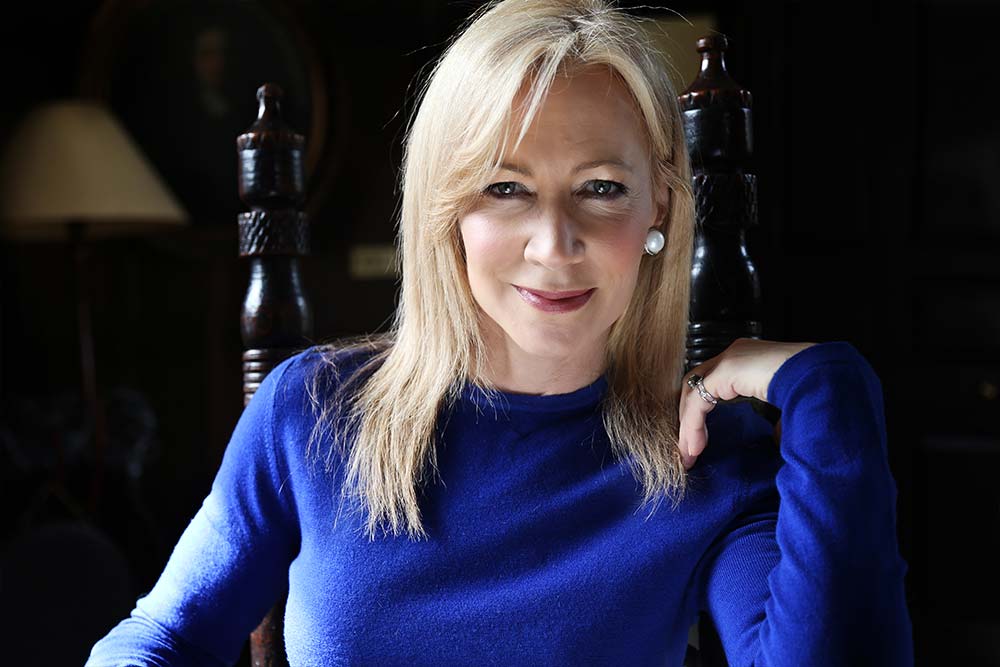

My goal is that this project will document what we’re experiencing right now, which is the Golden Age of choral music..."

You’ve worked with beginner/amateur standard right up to professional level choirs, how do you select your singers and differentiate between excellent choral singers?
First of all, they’re two very different animals. It’s hard to compare the professional chorister to the amateur choir singer, because they are so far apart. For me, it’s fascinating moving between one sphere and the next. Both are equally valuable and fulfilling.
For the amateur singers, it’s a wonderful experience to work with a group of people who have chosen to be there, and this has become a central part of their lives. They are intelligent and thirsty while they work as a team and are mutually supportive. Top professional choirs and the elite singers are thoroughbreds and are superb. They have four vital elements: 1. the supreme understanding of choral singing and what that requires; 2. technical vocal brilliance; 3. stylistic versatility from medieval to contemporary and work in different languages; 4. perfect sight reading. I commission a lot of new works and they have to be able to sight read. These are very special people – quite often they know more than you do and are very fine musicians.
Who or what inspires you?
I’m hugely inspired by people who have committed themselves wholeheartedly to what they do and don’t succumb to cynicism and negativity – they are shining beacons. I’m very inspired by very old people, who have lived their lives well – these people hold increasingly more fascination for me. I also have huge admiration for people who throw their whole selves into what they do.
When it comes to the what? There’s nothing like working extremely hard under considerable stress towards an end that will take those people to a place they’ve never been through music.
What’s next for you?
It’s ORA and my 100 commissions. We’ve now recorded seven full albums and commissioned 40 composers to write 40 reflections of Renaissance Masterpieces. My goal is that this project will document what we’re experiencing right now, which is the Golden Age of choral music, and I don’t think it’s happening anywhere else in the arts. Now is the time to be commissioning. Composers are more and more confident in writing music that is beautiful, powerful and that can immerse their audiences. I believe the last golden age was the Renaissance, hence I want to bridge the two eras. If people in the future can look back at this time capsule of recordings and see it as a true representation of what’s happening in this area, then that is what I would like to achieve. The standard is incredible, and it’s not just the brilliant singers, it’s the producers, the engineers, the composers. We’re one big family that works as an extraordinary team.
All images displayed in this article are subject to copyright.
Share this article


